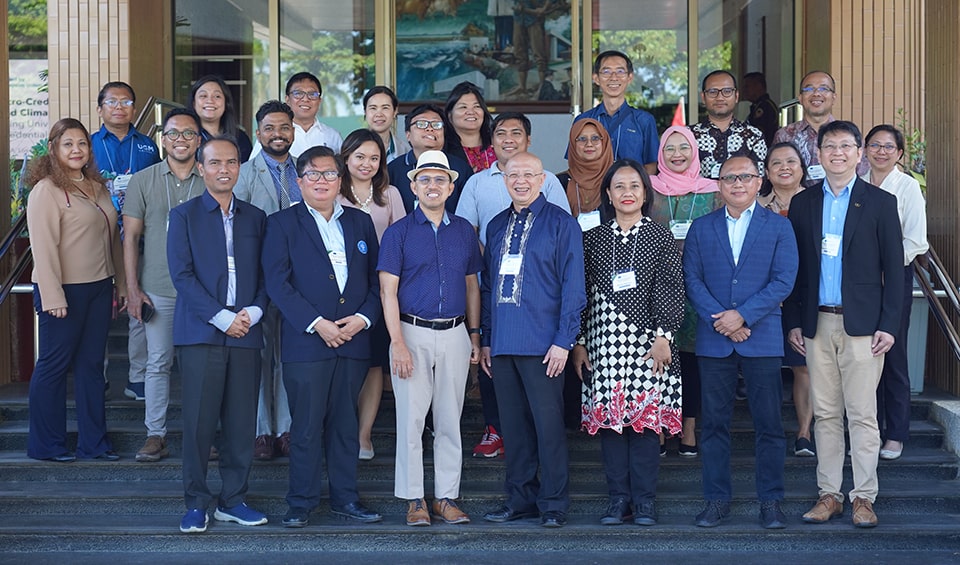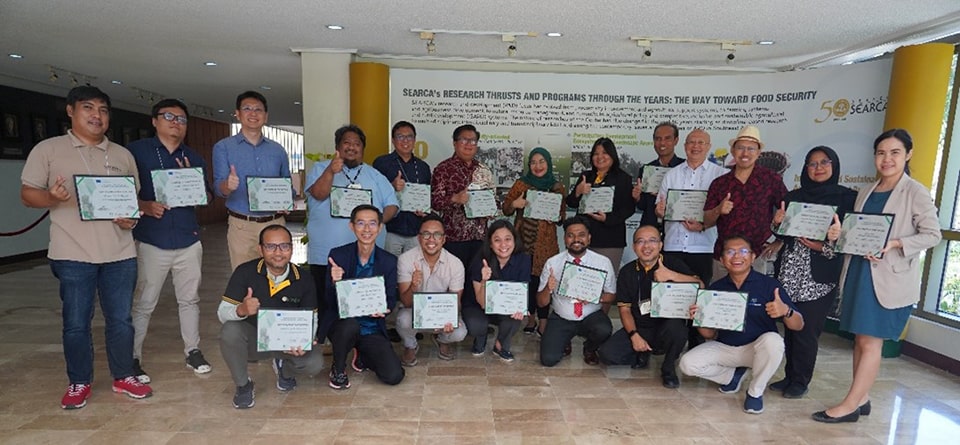The Southeast Asian Regional Center for Graduate Study and Research in Agriculture (SEARCA) hosted a workshop on Harmonizing University Policies in Postgraduate Micro-credentials on 6–7 May 2024 at its office in Los Banos, Laguna. The workshop is part of the activities of the Postgraduate Micro-credentials in Food Security and Climate Change (PMC FSCC) project, which is funded by the European Commission ERASMUS+ Capacity Building in Higher Education (CBHE) program.

A total of 21 delegates came from various universities in Southeast Asia, including Institut Pertanian Bogor (IPB), Universitas Gadjah Mada (UGM), and Universitas Brawijaya (UB) located in Indonesia; Maejo University (MJU) and Kasetsart University (KU) situated in Thailand; University of the Philippines Los Banos (UPLB), Central Luzon State University (CLSU), and Visayas State University (VSU) in the Philippines, and Universiti Malaysia Sabah (UMS) in Malaysia. Additionally, Universiti Putra Malaysia (UPM) joined the workshop online. The two-day event was facilitated by UGM as the lead of Work Package 3 on Micro-Credential University Policies and Quality Plan. It aimed to develop strategies, agreements, and frameworks regarding the establishment and quality assurance of micro-credentials, with a focus on FSCC.
Dr. Glenn B. Gregorio, SEARCA Center director and head of the UC Secretariat, welcomed the delegates and highlighted the crucial role of policies in ensuring quality education. He urged everyone to keep an open mind about the underlying contexts and premises of the policies and for the delegates to actively participate in the workshop discussions to benefit the universities and the UC.
Assoc. Prof. Dr. Buncha Chinnasri, project leader of the PMC FSCC project and the UC executive officer from Kasetsart University, reported on the latest activities and milestones of the project. He also discussed what is expected from the current workshop in relation to the upcoming deliverable deadlines of the funding agency. To kick off the workshop, Dr. Prakash Murgeppa Bhuyar, director/assistant dean of the International Industry and Agriculture Innovation Research Center (IIAR) at Maejo University, shared the details of the training on the development of modules that was held in Bangkok, Thailand on 22–26 April 2024.
During the workshop, Dr. Irwan Endrayanto Aluicius, head of the Division of Academic Studies at the Directorate of Academic Innovation of UGM, presented the findings of a survey conducted among the project members. The survey aimed to understand the policies and guidelines related to micro-credentials in their respective universities and countries. The delegates were divided into three groups to discuss the university policies identified in the initial survey results. The groups then presented their discussions and drafted a plan to harmonize the diverse policies of the universities. It was later on presented for critiquing and further refinement by the delegates during the second day of the workshop. By the end of the workshop, a draft report on harmonizing university policies to support micro-credentials was developed.

Dr. Budi Guntoro, dean of the Faculty of Animal Sciences and UC executive officer of UGM delivered the closing message of the program. He acknowledged the differences among the project partners’ university academic rules, but the workshop was a testament to the partners’ willingness to find similarities amidst the differences.
Since 2023 and running through 2026, the PMC FSCC project aims to provide short-term courses through micro-credentials focused on food security and climate change concerns. The project will also make use of technological advancements to offer online learning modules that address the twin issues of food security and climate change.